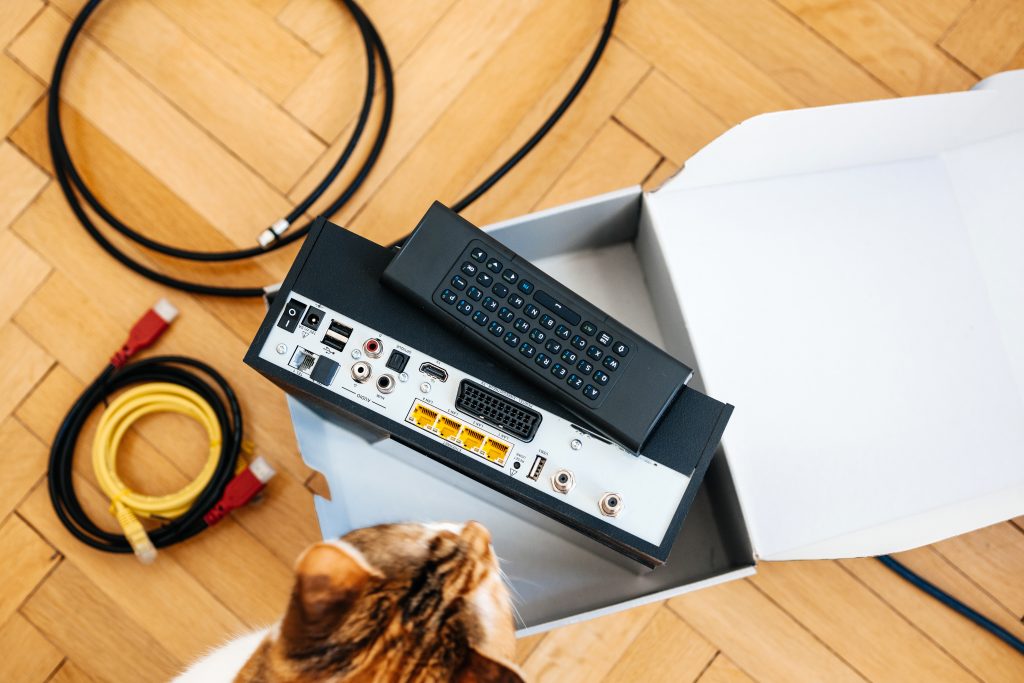
In our modern world of tech, there are now a lot of cords and wires. At Troomi, we’ve gone over how to keep our kids safe from cords, especially babies and toddlers, but what if we also have pets? Maybe we have pets who like to chew on cords. Maybe that pet is my sweet dog who has destroyed yet another tupperware. Maybe a lot of us have sweet dogs that haven’t outgrown their puppy habit of chewing cords.
So let’s go over the question we all have: how to stop my dog from chewing electrical wires.
First look at why your dog is chewing on cords or wires in the first place. This is known as destructive chewing. Dogs, as part of growing up, chew on things for a number of reasons. Teething, separation anxiety, boredom, or even they just haven’t been trained out of it yet.
Okay, you might now be thinking, “what, are cords safe for cats or something? Why all this focus on dogs?” No, cords and wires are also dangerous for cats and even rodents (if your family has mice, hamsters, or rats). Dogs are the most common culprit when it comes to wire gnawing, but they aren’t the only ones responsible. And chewing on wires is dangerous. They are at risk of electric shock and even choking. Let’s look at how to prevent pets from chewing electrical cords and keep our tech, and more importantly our pets, safe and healthy.
Pet dental hygiene
Both cats and dogs chew as part of keeping their teeth healthy. Even rodent pets chew as part of their dental hygiene. If your pet is chewing on cords, you should take them to the vet to have their teeth, and their diet, checked.
Toy alternative
One reason pets, both cats and dogs, chew on cords is due to boredom or anxiety. Giving them an alternative toy to play with or chew on will alleviate their desire to chew on your cords.
Access
One of the simplest ways to keep cords out of pets’ mouths is by blocking access. You can run wires behind or under furniture. If you have pets that can fit behind furniture, you can even run the wires under rugs or duct tape them down. If your pet can’t see the wire, the temptation to chew is eliminated.
If you can’t tuck cords behind or under furniture, you can also elevate and mount your wires higher on a wall. You can cover them with flat wire channels or even run them through the inside of a hose. There are also plastic or rubber wire covers that you can wrap around your cords.
If you have dangling cords from your computer, tv, or lights, you can wind them up and tuck the excess cords out of reach.
Anti-chewing spray
Anti-chewing sprays will deter your pets from chewing on cords, but isn’t nearly as humane as training. If your pet is still determined to chew on your wires or even your remotes, use an Anti-chewing spray for their safety. Make sure to do your research and know what things are safe for your pets. Pet Life Today has done some research and these are the best repellent sprays for dogs and cats.
Protecting cables from cats, dogs, and other pets is best done in the prevention stage. If your dog or cat bites a live wire, check out these steps on what to do. Our pets are part of our families. By taking the right steps, we can keep them healthy and safe.
Our world is changing quickly, with new wonders and new dangers. We want to keep our pets safe, but even moreso, we want to protect and teach our kids so they can someday make it on their own. This is where Troomi comes in. With Kidsafe apps and military grade security, these smartphones are designed to teach them responsibility as well as keep them safe. Check out Troomi for the plan right for your family.
